allyl phenylacetate
phenylacetic acid allyl ester synthesis - honey scent
I know you guys would use phenylacetic acid for something more juicy / spicy. I synthesized this harmless ester product. I already have commercial
methyl and ethyl esters and both have sweet honey scent. Allyl ester is more clean honey with less side scents, it is artificial so it does not occur
in nature.
http://www.thegoodscentscompany.com/data/rw1002911.html
prop-2-enyl 2-phenylacetate
Specific Gravity: 1.03300 to 1.04100 @ 25.00 °C (in my experiment I used isohexanes which diluted it so the final density was lower than the density
of water, also better separation from water, but emulsion formed at same stage anyway)
Boiling Point: 239.00 to 240.00 °C. @ 760.00 mm Hg
Boiling Point: 89.00 to 93.00 °C. @ 3.00 mm Hg
Odor Type: honey
Odor Strength: medium
honey fruity rummy
Odor Description at 100.00 % honey fruity rum
Flavor Type: honey
honey
Taste Description: honey
https://en.wikipedia.org/wiki/Allyl_phenylacetate
Allyl phenylacetate is an ester with a fruity honey odor,[1] used in the perfume and flavoring industries. It is the ester resulting from the
esterification of allyl alcohol and phenylacetic acid. It has not been reported to be found in nature.[2]
Allyl phenylacetate is one of only a few known ligands for the human olfactory receptor OR51L1.
https://en.wikipedia.org/wiki/OR51L1
there are only 2 ligands which bind to the above OR51L1 receptor, one is allyl phenylacetate and second one hexanoic acid - at least one of them must
bind also to another receptor as their scent is very different
the synthesis:
phenylacetic acid 34,0 g = 0,25 mol (M = 136,15 g/mol)
allyl alcohol 14,5 g (M = 58,08 g/mol), I used 50 % excess = 21,8 g and I used approx 85% w/w allyl alcohol (approx 15% water content) = 25,6 g
H2SO4 0,25 ml (only catalyst)
isohexanes 30 ml (more than the volume of dean stark trap apparatus)
refluxed in 250 ml RBF with 10 ml Dean-Stark trap apparatus, after 1 h 13,0 ml bottom phase collected (0,25 mol = 4,5 g reaction H2O, approx. 3 ml H2O
15% content in 25 g allyl alcohol, 6,5 g allyl alcohol that's why excess of allyl alcohol used), rfx continued for extra 1 hour, no more bottom phase
trapped
cooled down in cold water bath
transferred into 250 ml separatory funnel and washed:
100 ml cold water
100 ml cold water
100 ml 5% NaHCO3
100 ml 5% NaHCO3
100 ml cold water, emulsion formed, 25 ml of concentrated NaCl solution added to break it
100 ml cold water, emulsion formed, 25 ml of concentrated NaCl solution added to break it
upper phase transferred into 250 ml FBF where dried with Na2SO4 1 hour on magnetic stirrer and then overnight
filtered through funnel with small cotton plug into 250 ml RBF
isohexanes and traces of abundant allyl alcohol distilled out on oil bath, later weak vacuum applied (water aspirator) to remove more of them
vacuum distilled using 2-stage rotary oil vacuum pump, vacuum level unknow, distillate in range 65-70 C, most of it in range 69-70 C
yield 38,0 g (86%)
M = 176,2 g/mol, n = 0,25 mol, m = M * n = 44,05 g (100 %)
esterification
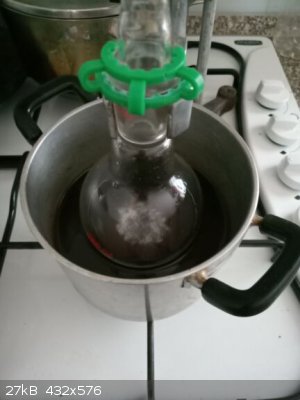 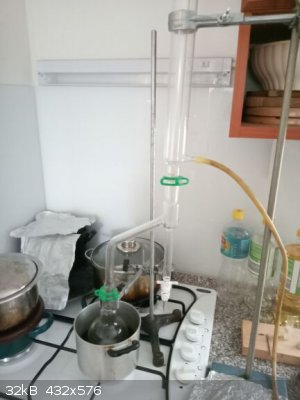 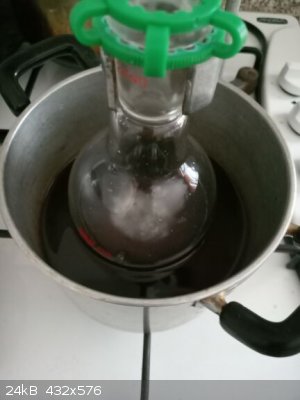
washing, when emulsion (although isohexanes present, third picture) it was necessary to add 25 ml of concentrated NaCl solution to break the emulsion
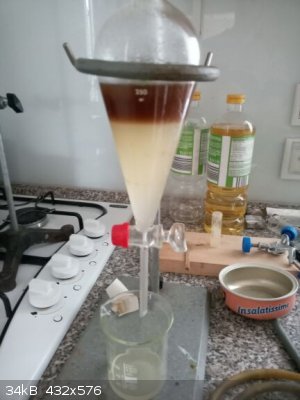 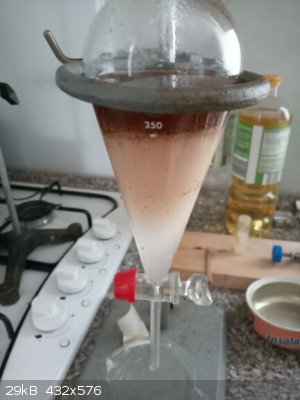 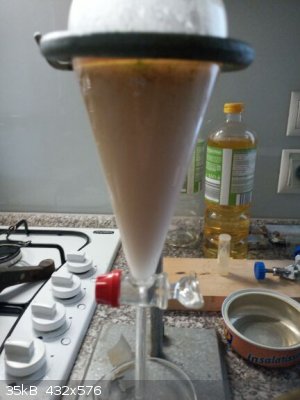
vacuum distillation
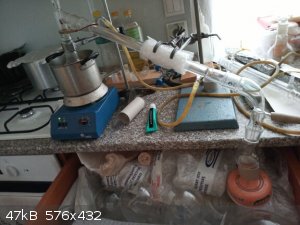 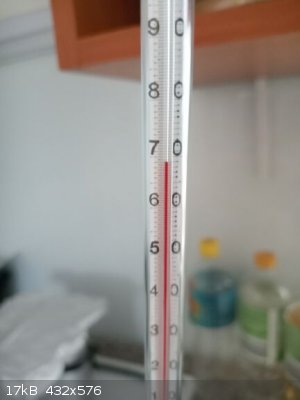 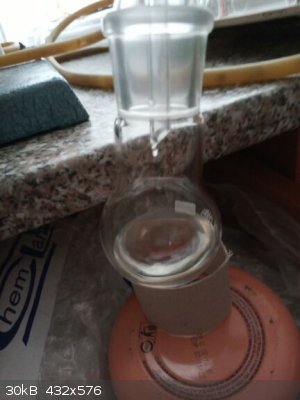 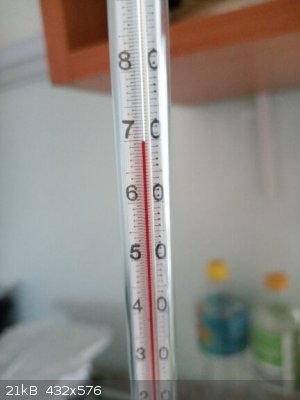 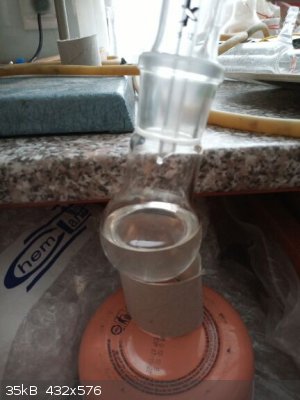
video of vacuum distillation:
https://youtu.be/enP7xpe4yhI
|